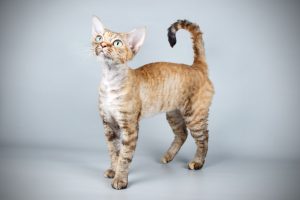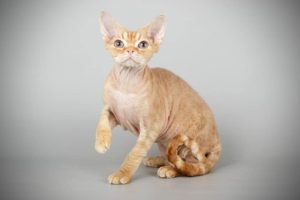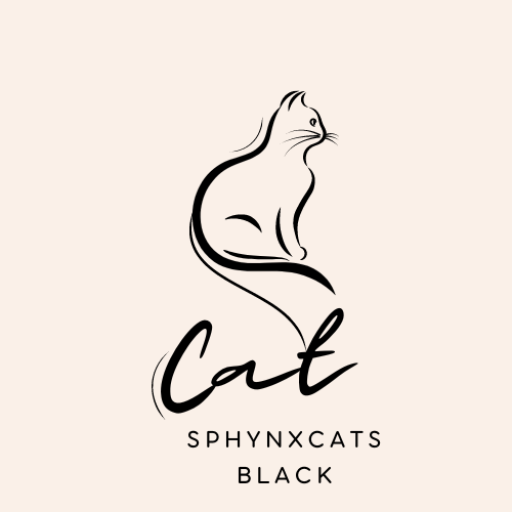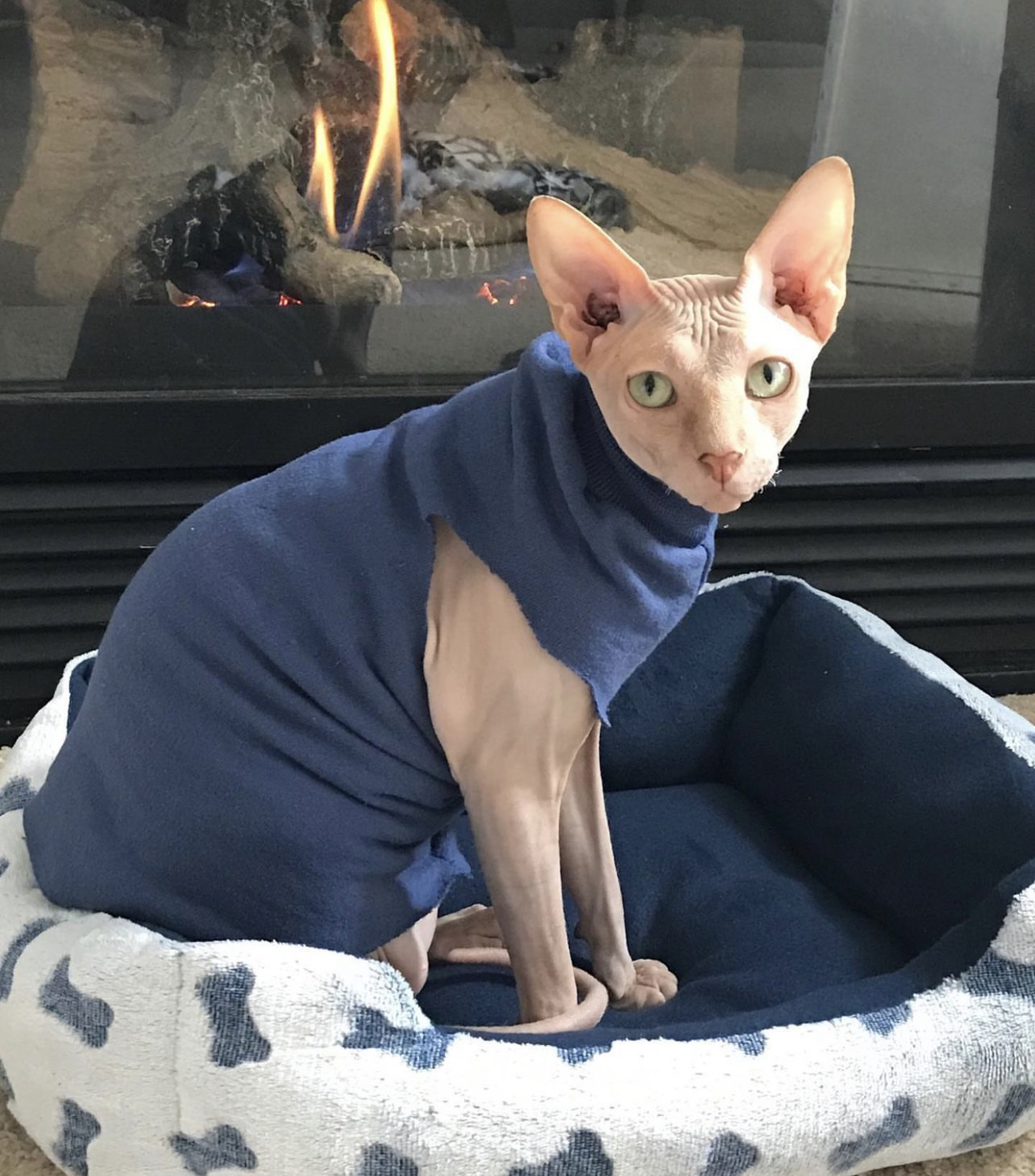The Devon Rex is a unique and distinctive cat breed known for its striking appearance, including large ears and a soft, curly coat. Here’s more information about Devon Rex cats:

devon rex
- Physical Appearance: Devon Rex cats are small to medium-sized with a slender, well-muscled body. Their most prominent feature is their large, low-set ears, which give them an elf-like appearance. They have a short, curly coat that is soft to the touch.
- Coat: The coat of a Devon Rex is relatively short, wavy, and soft. It lacks the guard hairs that other cat breeds have, giving it a unique texture. The coat comes in a variety of colors and patterns.
- Personality: Devon Rex cats are known for their friendly and playful personalities. They are often described as “pixie-like” due to their lively and mischievous nature. They are social cats that enjoy interacting with their human companions and are good with children and other pets.
- Intelligence: Devon Rex cats are intelligent and curious. They enjoy mental stimulation and can be taught tricks and play interactive games.
- Vocalization: While not as vocal as Siamese cats, Devon Rex cats are known to be communicative and may use soft meows and purring to express themselves.
- Health Considerations: Devon Rex cats are generally healthy, but they may be prone to certain health issues, including skin problems due to their unique coat and genetic conditions like hypertrophic cardiomyopathy (a heart disease). Regular veterinary check-ups are important.
- Origin: The Devon Rex breed originated in the 1960s in Devonshire, England, when a stray cat gave birth to a curly-coated kitten. Breeders then developed the breed through selective breeding.
- Popularity: Devon Rex cats are a popular breed due to their unique appearance and engaging personalities. They have a following among cat enthusiasts worldwide.
- Indoor Living: Due to their unique coat and small size, Devon Rex cats are best suited for indoor living to protect them from the elements and potential dangers. They enjoy a safe and stimulating indoor environment.
- Grooming: Despite their short coat, Devon Rex cats may require regular grooming to keep their skin healthy and to prevent matting. Bathing and brushing can help maintain their coat’s condition.
Devon Rex cats make wonderful companions for individuals and families who appreciate their distinctive appearance and playful temperament. They thrive in homes where they receive plenty of attention and mental stimulation. If you decide to adopt a Devon Rex, choose a reputable breeder or consider adopting from a rescue organization or shelter.

devon rex
devon rex cat devon rex
The Devon Rex is a unique and distinctive cat breed known for its striking appearance, including large ears and a soft, curly coat. Here’s more information about Devon Rex cats:
- Physical Appearance: Devon Rex cats are small to medium-sized with a slender, well-muscled body. Their most prominent feature is their large, low-set ears, which give them an elf-like appearance. They have a short, curly coat that is soft to the touch.
- Coat: The coat of a Devon Rex is relatively short, wavy, and soft. It lacks the guard hairs that other cat breeds have, giving it a unique texture. The coat comes in a variety of colors and patterns.
- Personality: Devon Rex cats are known for their friendly and playful personalities. They are often described as “pixie-like” due to their lively and mischievous nature. They are social cats that enjoy interacting with their human companions and are good with children and other pets.
- Intelligence: Devon Rex cats are intelligent and curious. They enjoy mental stimulation and can be taught tricks and play interactive games.
- Vocalization: While not as vocal as Siamese cats, Devon Rex cats are known to be communicative and may use soft meows and purring to express themselves.
- Health Considerations: Devon Rex cats are generally healthy, but they may be prone to certain health issues, including skin problems due to their unique coat and genetic conditions like hypertrophic cardiomyopathy (a heart disease). Regular veterinary check-ups are important.
- Origin: The Devon Rex breed originated in the 1960s in Devonshire, England, when a stray cat gave birth to a curly-coated kitten. Breeders then developed the breed through selective breeding.
- Popularity: Devon Rex cats are a popular breed due to their unique appearance and engaging personalities. They have a following among cat enthusiasts worldwide.
- Indoor Living: Due to their unique coat and small size, Devon Rex cats are best suited for indoor living to protect them from the elements and potential dangers. They enjoy a safe and stimulating indoor environment.
- Grooming: Despite their short coat, Devon Rexx cats may require regular grooming to keep their skin healthy and to prevent matting. Bathing and brushing can help maintain their coat’s condition.
Devon Rexx cats make wonderful companions for individuals and families who appreciate their distinctive appearance and playful temperament. They thrive in homes where they receive plenty of attention and mental stimulation. If you decide to adopt a Devon Rex, choose a reputable breeder or consider adopting from a rescue organization or shelter.
devon rex kittens
If you’re interested in adopting Devon Rex kittens, here are some steps you can take to find them:
- Search Online: Begin your search by looking for Devon Rex kittens online. Websites like Petfinder, Adopt-a-Pet, and local rescue organization websites often list available kittens, including specific breeds like Devon Rexx.
- Contact Breeders: Reach out to reputable Devon Rexx breeders in your area or beyond. Look for breeders who are registered with cat breeding associations or clubs and have a good reputation for ethical breeding practices. They can provide you with information about available kittens and their upcoming litters.
- Visit Cat Shows: Attend cat shows and exhibitions in your area or nearby cities. Devon Rexx breeders often showcase their cats and kittens at these events. It’s an excellent opportunity to meet breeders in person and inquire about available kittens.
- Ask for Recommendations: Seek recommendations from fellow cat enthusiasts, friends, or family members who may have adopted Devon Rexx kittens or know reputable breeders.
- Check Classified Ads: Look in local classified ads, both online and in newspapers, for listings of Devon Rex kittens available for adoption or sale.
- Visit Shelters and Rescues: While it’s less common to find purebred Devon Rexx kittens in shelters, it’s worth checking local animal shelters and rescue organizations. Occasionally, they may have Devon Rexx kittens available for adoption.
- Be Patient: Finding Devon Rexx kittens may take time, especially if you’re specifically looking for a certain coat color or pattern. Be patient and do thorough research to ensure you are acquiring kittens from a reputable source.
- Review Adoption Policies: Whether you’re adopting from a breeder or rescue, review their adoption policies and contracts carefully. Ensure you understand the terms and responsibilities associated with adopting Devon Rex kittens.
- Visit the Kittens: If possible, schedule a visit to meet the kittens and the breeder or rescue organization in person. This will allow you to assess the kittens’ health and socialization and ensure they are well-cared for.
- Consider Adoption: While it’s common to purchase Devon Rex kittens from breeders, consider adopting from a shelter or rescue. Adoption provides a loving home for a cat in need and may be a more cost-effective option.
When acquiring Devon Rexx kittens, prioritize their health and well-being. Ensure that the breeder or rescue organization follows responsible breeding or adoption practices and provides documentation of health checks and vaccinations. Additionally, consider the long-term commitment of caring for Devon RexX kittens and provide them with a safe and loving home.

